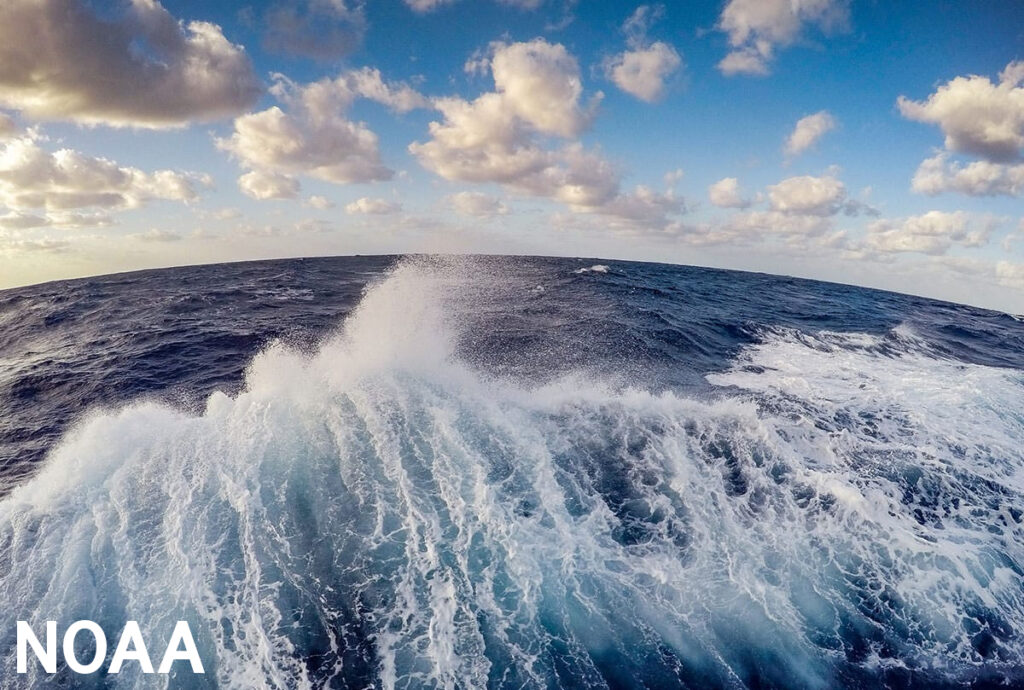From the desk of Dr. Rick Spinrad: ‘What World Ocean Day can look like in 100 years’
Posted
Last Updated
By noaa.gov
More often than not, when we talk about ocean conservation, the conversation naturally gravitates toward what we stand to lose if we don’t act. This is only natural, as the urgency of the climate and biodiversity crises forces us to consider a future where our most cherished natural places are irrevocably harmed and keystone species are lost.
I know that we cannot be naive in the face of science, but I’d like to propose an alternate frame of mind – one that focuses on the tremendous economic, public health, and climate benefits we stand to gain from protecting our ocean at the scale that’s needed. As the theme of this World Ocean Day is “Planet Ocean: Tides are Changing”offsite link, I’d like for us to imagine a future where those tides bring in possibility and abundance rather than loss and sacrifice.
I like to imagine the accomplishments my successors will tout decades from now, especially those which resulted from the comprehensive protection and restoration of our ocean. One of those key building blocks is the first-ever United States Ocean Climate Action Plan, released in March by the Biden-Harris Administration. It charts a path to harness the power of the ocean to build a sustainable future for all. NOAA’s work to safeguard and restore our coasts and waters as well as our scientific and technological advancements will play a role in these successes, but we can’t do it alone. We need every person to know what’s possible and help push for it — starting at the local level.
What if we could say that we adequately curbed climate change and ocean conservation was a key part of the solution? That the world finally realized that the ocean could not act as a sponge for polluting emissions and global warming forever and stepped up its protection of our waters? We now live in a carbon-neutral society, and as a result, the ocean has had time to recover and bring its capacity to store heat back into balance.
In 100 years, our society will be powered by clean energy, with ocean energy, like offshore wind, providing a key part of that mix. Through cutting-edge science, and improved abilities to predict changes in the environment, the hard work we’re doing to set a strong foundation today will be on full display as we see healthy whale populations alongside sustainable domestic fisheries and clean renewable energy projects. Turbines will spin in harmony with nature and other marine industries and even collect information that helps us further protect and sustainably manage natural resources.
In the year 2123, we recognize the role of the ocean in supporting public health. Not only have we slashed air pollution through emissions-free energy, but we’ve developed new lifesaving medicines derived from the ocean. Deep sea sponges, seaweed, and even tiny sea snails have helped us unlock the secrets to treating chronic pain, inflammation, and even some diseases. Additionally, by restoring coastlines and ocean ecosystems, people have regular opportunities to relax, recharge, and explore the splendor our coasts provide.
And in keeping with the theme of human well-being, we have the opportunity to help alleviate food insecurity by protecting marine ecosystems and sustainably managing the world’s fisheries. In 2023, more than 3 billion people rely on seafood as a primary source of protein, and it’s my hope that in 2123 this percentage only grows as we’re able to bring back depleted fish stocks and provide healthful fish, shellfish, and seaweed to dinner tables across the world. Through healthy oceans, the fishing industry continues to support good-paying and long-term jobs as well as vibrant coastal communities.
The loss or degradation of the places and species our families and communities have loved for generations is not a foregone conclusion. Our favorite beaches don’t have to be swallowed by sea level rise; coral reefs teeming with life don’t have to vanish; our local marshes and wetlands don’t have to be compromised by saltwater intrusion; and we don’t have to lose any more plants and animals to extinction.
We hold the power to make the vision I’ve outlined a reality. Thanks to President Biden’s Investing in America agenda – which includes billions of dollars that can support coastal resilience and ocean climate action – we have more resources than ever before. My challenge this World Ocean Day is to focus on the possible and the tremendous opportunities that conservation efforts can unlock. After all, hopelessness is a feeling, not a fact, and a bit of optimism can go a long way in fueling our fight.
Read more at noaa.gov.

